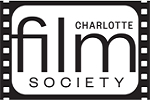Monday, April 01, 6:30 pm, UNC Charlotte Main Campus,Student Union Theater
Kinji Fukasaku, 2000/113 min.
Japanese with English subtitles
Sponsors: The Popp-Martin Student Union Theater
Additional sponsors: Japanese Speaking Practice Club
Introduction by Phil Kaffen, Assistant Professor of Japanese, UNC Charlotte.
A discussion will follow the screening.
A dystopic parable, Battle Royale is among the most confrontational films of the past two decades. Upon its release in Japan, it created mass controversy, provoking debates in the Japanese Diet, and outrage among PTAs. The producing studio—Toei—initially refused to license it to the United States for fear that the film’s graphic depictions of violence and focus on junior high school students could provide legal reprisals. The film was not released officially in the United States until over a decade after its release in Japan. A dystopic parable set in a “future” Japan mired in economic depression and crime, Battle Royale tells the story of a class of junior high school students who are kidnapped and placed on a remote island. They are instructed to kill one another, and there can only be one survivor. The film is brutal, but also has a dark sense of humor and more than a little melodrama. In spite of its violence, the film’s anger and frustration at the numerous social ills plaguing Japan (and other societies) at the turn of the millennium, has garnered high praise world-wide, with Quentin Tarantino calling it his favorite film of the twenty-first century. It is also a popular reference point in many media—from animation to video games to other films. Most famously, the film seems to be the inspiration for The Hunger Games, though the latter feels quite tame by comparison. This was the last film made by Fukasaku, one of Japan’s most highly regarded and notorious filmmakers, and its cult status is assured for the foreseeable future.

